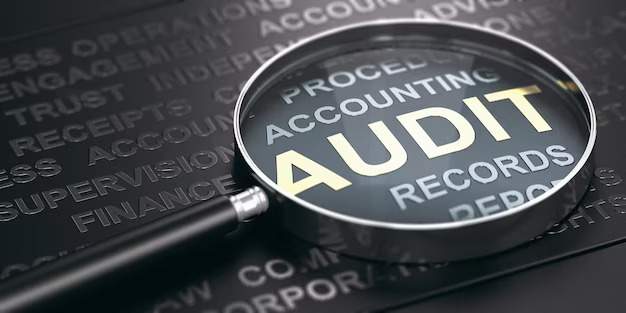Table of Contents
1. Introduction
2. Importance of Revenue Auditing
3. Assurance Services in Revenue Auditing
– Definition and Scope
– Objectives of Assurance Services
– Process of Assurance Services
4. Advisory Services in Revenue Auditing
– Role of Advisory Services
– Types of Advisory Services
– Benefits of Advisory Services
5. Challenges in Revenue Auditing Services
6. Conclusion
1. Introduction
Revenue auditing is a critical function that involves examining an organization’s financial records to ensure accurate reporting of revenue and compliance with relevant regulations. In the rapidly changing business landscape, revenue auditing has evolved beyond a mere compliance exercise and has become integral to strategic decision-making. Assurance and advisory services play a pivotal role in enhancing the effectiveness of revenue auditing processes.
2. Importance of Revenue Auditing
Revenue is the lifeblood of any organization, and its accurate reporting is essential for maintaining credibility with stakeholders, investors, and regulatory authorities. Revenue auditing ensures that financial information is reliable, transparent, and in line with accounting standards. It helps detect discrepancies, identify potential risks, and safeguard against fraud. Furthermore, revenue auditing provides insights into revenue generation strategies and assists in optimizing business operations.
3. Assurance Services in Revenue Auditing
Definition and Scope:
Assurance services in revenue auditing encompass a range of activities aimed at providing independent and credible assessments of an organization’s financial information. These services instill confidence in stakeholders by verifying the accuracy and reliability of revenue-related data.
Objectives of Assurance Services:
The primary objectives of assurance services in revenue auditing include:
– Confirming the accuracy of revenue recognition and reporting
– Validating the effectiveness of internal controls related to revenue
– Ensuring compliance with accounting standards and regulatory requirements
Process of Assurance Services:
The process involves:
– Planning: Defining the scope, objectives, and resources required for the assurance engagement.
– Evidence Gathering: Collecting relevant financial data, examining transactional records, and conducting substantive tests.
– Analysis: Evaluating the data for consistency, accuracy, and compliance with relevant standards.
– Reporting: Communicating findings, conclusions, and recommendations to stakeholders through assurance reports.
4. Advisory Services in Revenue Auditing
Role of Advisory Services:
Advisory services complement assurance by offering strategic guidance to enhance revenue-related processes. These services go beyond verification and focus on improving revenue generation, risk management, and operational efficiency.
Types of Advisory Services:
– Process Improvement: Identifying inefficiencies in revenue cycles and proposing streamlined procedures.
– Revenue Enhancement: Recommending strategies to optimize pricing, customer segmentation, and product/service offerings.
– Risk Management: Assessing risks associated with revenue recognition and proposing mitigation strategies.
– Technology Integration: Advising on the implementation of accounting software and systems for accurate revenue tracking.
Benefits of Advisory Services:
– Informed Decision-Making: Advisory services provide insights that enable organizations to make informed strategic decisions based on revenue analysis.
– Proactive Problem Solving: Organizations can address potential revenue-related challenges before they escalate, ensuring smoother operations.
– Value Addition: Advisory services contribute to revenue growth, cost reduction, and overall business improvement.
– Adaptation to Change: As business environments evolve, advisory services assist in adapting revenue strategies to new market dynamics.
5. Challenges in Revenue Auditing Services
Complex Revenue Models: With diverse revenue streams and evolving business models, auditing revenue becomes more intricate, requiring a deep understanding of industry-specific challenges.
Technological Advances: Organizations are adopting advanced technologies, such as blockchain and AI, for revenue management, necessitating auditors to adapt their methodologies.
Regulatory Changes: Constant changes in accounting and auditing standards require revenue auditors to stay updated and ensure compliance.
Data Privacy and Security: As revenue data becomes digital, maintaining data security and privacy becomes a critical concern.
Conclusion
The landscape of revenue auditing has evolved from being a routine compliance task to a strategic imperative for businesses. Assurance and advisory services contribute significantly to this evolution by not only ensuring the accuracy of financial reporting but also by providing strategic insights to optimize revenue generation, enhance risk management, and improve operational efficiency. In an era of rapid technological advancements and regulatory changes, revenue auditors must embrace innovation and continuous learning to effectively fulfill their roles.




